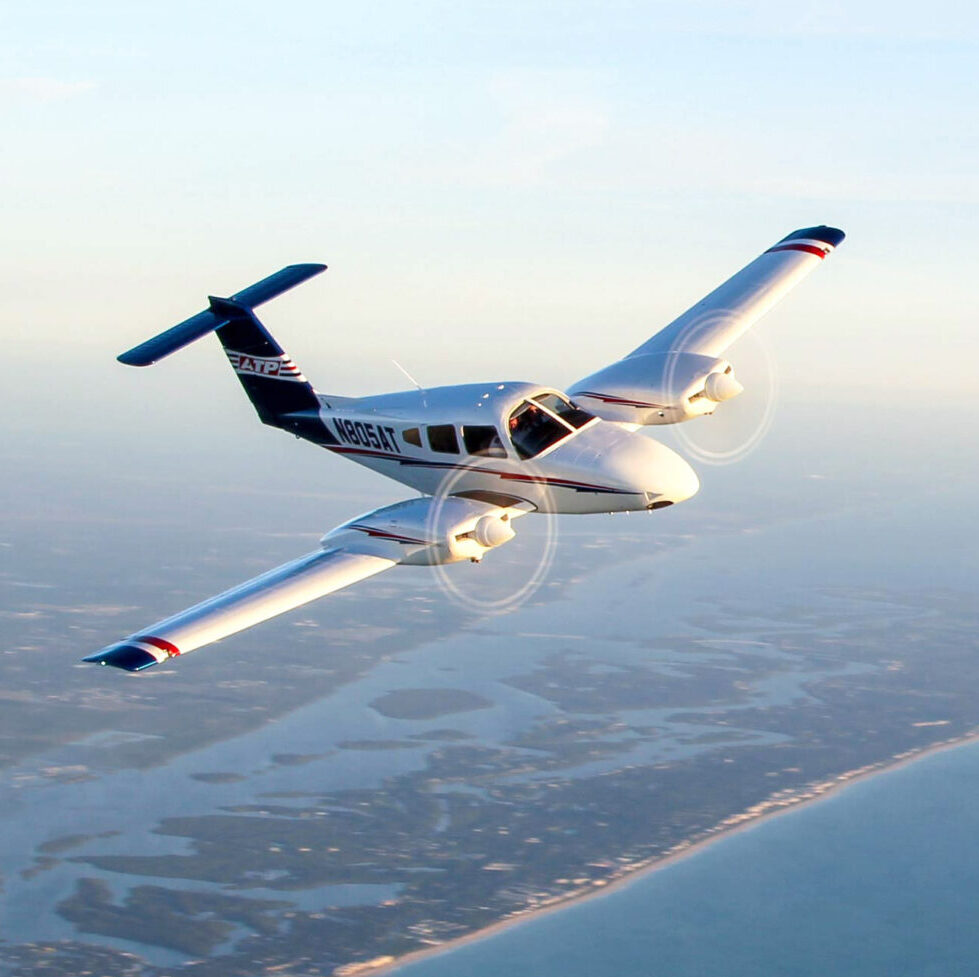
So you’ve always had a passion for flying, but the cost of flight training has been holding you back. Well, what if I told you that there’s a way to pursue your dream of becoming a pilot without drowning in debt? It’s called the GI Bill, and it provides educational benefits specifically designed for veterans like yourself. In this article, we’ll explore how the GI Bill can be your ticket to financial freedom in the world of aviation.

Overview of the GI Bill
The GI Bill, officially known as the Servicemen’s Readjustment Act of 1944, is a law that provides educational and other benefits to veterans of the United States Armed Forces. The bill aims to assist veterans in their transition to civilian life by offering financial aid for education, housing, and other expenses. Since its inception, the GI Bill has played a crucial role in helping veterans build successful post-military careers and achieve financial independence.
History and Purpose of the GI Bill
The GI Bill was created in response to the large number of veterans returning from World War II, seeking opportunities to rebuild their lives. It was designed to prevent the hardships faced by veterans after World War I, when little support was provided to them upon their return. The GI Bill aimed to ensure that veterans had access to education, training, and other resources to help them integrate into civilian life.
Types of GI Bill Programs
There are several different GI Bill programs available to veterans, each with its own unique benefits and eligibility requirements. The most well-known program is the Post-9/11 GI Bill, which provides financial assistance for education and training to those who have served on active duty for at least 90 days since September 10, 2001. Other programs include the Montgomery GI Bill, the Reserve Educational Assistance Program (REAP), and the Veterans’ Educational Assistance Program (VEAP). Each program may have different benefits and eligibility criteria, so it is important for veterans to understand which program best suits their needs.
Benefits and Assistance Available to Veterans
The GI Bill offers a range of benefits and assistance to veterans pursuing education or training. These benefits include coverage of tuition and fees, a monthly housing allowance, and a stipend for books and supplies. Additionally, veterans may be eligible for assistance with vocational training, on-the-job training, and apprenticeships. The GI Bill not only provides financial support but also offers counseling services and career guidance to help veterans make informed decisions about their educational and career paths.
Opportunities for Veterans in the Aviation Industry
The aviation industry has become an attractive career option for veterans due to its growth, demand for pilots, and unique benefits. With advancements in technology and an increase in air travel, the demand for pilots has been steadily rising. This presents a unique opportunity for veterans, who possess the skills, discipline, and leadership abilities that are well-suited for a career in aviation.
Growth and Demand for Pilots
The aviation industry is experiencing unprecedented growth, resulting in an increasing demand for qualified pilots. With the expansion of commercial airlines, the retirement of experienced pilots, and the opening of new routes, there is a need for a steady supply of skilled aviators. This demand offers great career prospects for veterans looking to transition into the aviation industry.
Benefits of a Career in Aviation
A career in aviation offers numerous benefits for veterans. Along with a competitive salary, pilots often enjoy flexible schedules, travel opportunities, and the chance to work in a dynamic and fast-paced environment. The aviation industry also values the skills and experience gained in the military, making it an ideal career path for veterans seeking to apply their knowledge and expertise in a civilian setting.
Challenges and Opportunities for Veterans
While there are many opportunities for veterans in the aviation industry, there are also challenges that they may face during their transition. Veterans may need to acquire additional certifications and licenses, complete specialized training programs, and adapt to a new work environment. However, veterans’ adaptability, discipline, and problem-solving skills acquired in the military can help them navigate these challenges and excel in their aviation careers.
Understanding the Pilot Training Process
Becoming a professional pilot requires undergoing specific training programs to acquire the necessary skills and knowledge. Understanding the pilot training process is essential for veterans looking to pursue a career as a pilot.
Types of Pilot Training Programs
There are different types of pilot training programs available, each tailored to meet specific goals and qualifications. These programs include private pilot training, commercial pilot training, and airline transport pilot training. The training programs vary in duration, content, and requirements, depending on the level of certification sought by the individual.
Requirements and Qualifications
To enter a pilot training program, aspiring pilots must meet certain requirements and qualifications. These typically include a minimum age, a high school diploma or equivalent, and a valid medical certificate. Additionally, applicants must possess a certain level of English proficiency and pass various aptitude and knowledge tests. Veterans who meet these requirements can pursue pilot training programs and begin their journey towards becoming a pilot.
Costs Associated with Pilot Training
Pilot training can be a significant financial investment, and it is important for veterans to understand the costs associated with this pursuit. The expenses for pilot training may include tuition fees, flight hours, aircraft rental, training materials, and examination fees. While the costs may seem daunting, veterans can utilize their GI Bill benefits and explore other financial aid options to alleviate the financial burden.
Financial Assistance Available for Pilot Training
Veterans with a desire to become pilots can utilize their GI Bill benefits to pursue pilot training, as the GI Bill covers educational expenses and vocational training. Understanding the financial assistance available for pilot training is essential to make the most of these benefits.
GI Bill Eligibility for Pilot Training
Eligibility requirements for using the GI Bill benefits for pilot training vary depending on the specific GI Bill program. Generally, veterans must have served a minimum period of active duty and meet specific requirements set forth by the GI Bill program they wish to utilize. It is crucial for veterans to verify their eligibility and consult with VA representatives or military education offices to ensure a smooth application process.
Using GI Bill Benefits for Flight Training
Once determined eligible, veterans can utilize their GI Bill benefits to cover the costs of flight training. This includes tuition fees, aircraft rental, and flight hours necessary for certification. By utilizing GI Bill benefits for flight training, veterans can reduce their out-of-pocket expenses and focus on building the skills required for a successful career as a pilot.
Coverage and Limitations of GI Bill Assistance
While the GI Bill provides substantial financial assistance, it is important for veterans to familiarize themselves with the coverage and limitations of the benefits. The GI Bill typically covers a percentage of the national average for in-state tuition, and veterans may also receive a housing allowance and a stipend for books and supplies. However, there may be limitations on flight hours covered and certain specialized programs that may not be eligible for GI Bill assistance. It is advisable for veterans to research and consult with VA representatives to understand the specific coverage and limitations of the benefits.

Choosing the Right Flight School
Selecting the right flight school is a crucial step in a veteran’s journey towards becoming a pilot. Several factors need to be considered to ensure a quality education and effective utilization of GI Bill benefits.
Accreditation and Certification
One of the most important factors to consider when choosing a flight school is its accreditation and certification. Accreditation ensures that the flight school meets recognized standards of quality and the curriculum covers the necessary knowledge and skills. Veterans should look for flight schools accredited by reputable aviation organizations to ensure they receive a comprehensive and recognized education.
Curriculum and Training Standards
The curriculum and training standards of a flight school are directly linked to the quality of education veterans will receive. Veterans should evaluate the curriculum to ensure it covers all the required subjects and adheres to industry standards. Additionally, the availability of experienced instructors and access to modern training equipment and aircraft are key indicators of a flight school’s commitment to excellence.
Financial Considerations When Choosing a Flight School
Financial considerations play a significant role in choosing a flight school, especially for veterans looking to maximize their GI Bill benefits. Veterans should consider the cost of tuition, flight hours, and other associated fees when comparing different flight schools. Additionally, veterans should assess the school’s policies on accepting GI Bill benefits and ensure they can make the most of their educational benefits without incurring unnecessary expenses.
Maximizing GI Bill Benefits for Pilot Training
To make the most of their GI Bill benefits, veterans should familiarize themselves with the payment rates, allowances, and other factors that impact their financial assistance.
Understanding Payment Rates and Allowances
Payment rates for GI Bill benefits are determined by factors such as the GI Bill program utilized, the veteran’s length of service, and the number of credits or flight hours pursued. Veterans should consult with VA representatives to understand the payment rates and allowances specific to their situation. This knowledge will help them plan their finances effectively and ensure they receive the maximum benefit from their GI Bill assistance.
VA-Approved Schools and Programs
To utilize GI Bill benefits, veterans must enroll in VA-approved flight schools and programs. These schools undergo rigorous scrutiny to ensure they meet the educational standards and requirements set by the VA. Veterans should research and select from the list of approved schools to ensure they can fully utilize their GI Bill benefits and receive a quality education.
Using Other Financial Aid Options in Conjunction with the GI Bill
While the GI Bill provides valuable financial assistance, veterans may also explore other financial aid options to supplement their education and training. Scholarships, grants, and loans are some of the alternative resources veterans can consider to cover remaining or additional expenses. Veterans should research and apply for such aid in conjunction with utilizing their GI Bill benefits for pilot training.
Success Stories: Veterans Transitioning to Careers as Pilots
Numerous veterans have successfully transitioned to careers as pilots, thanks to the support of the GI Bill. These success stories provide inspiration and guidance to veterans considering a similar career path.
Profiles of Veterans Who Have Utilized the GI Bill for Pilot Training
There are many veterans who have utilized their GI Bill benefits to pursue pilot training and achieve their dream of becoming a pilot. These individuals come from diverse backgrounds and branches of the military, showcasing how the GI Bill can benefit veterans from all walks of life. Their stories serve as a testament to the opportunities and possibilities that await veterans in the aviation industry.
How the GI Bill Helped Them Achieve Financial Freedom and Career Success
The GI Bill has played a significant role in helping veterans achieve financial freedom and career success as pilots. By providing financial assistance for pilot training, the GI Bill has alleviated the financial burden and allowed veterans to focus on their education and skill development. These individuals have gone on to build successful careers as pilots, enjoying the financial rewards and personal fulfillment that come with it.
Advice for Veterans Considering a Career as a Pilot
Veterans who have successfully transitioned to a career as a pilot have valuable advice to share with those considering the same path. They often highlight the importance of thorough research, determination, and persistence. They encourage veterans to take advantage of the GI Bill benefits, explore all available resources, and never lose sight of their goals and aspirations.
Challenges and Considerations for Veterans Pursuing Pilot Training
While the path to becoming a pilot can be rewarding, it is not without its challenges. Veterans should be prepared for the technical, physical, mental, and emotional demands that come with pursuing pilot training and a career in aviation.
Technical and Physical Requirements
Becoming a pilot requires meeting specific technical and physical requirements. Veterans should be prepared to undergo medical examinations, physical fitness evaluations, and training that tests their mental acuity, hand-eye coordination, and multitasking abilities. Meeting these requirements may pose challenges, but veterans’ discipline and determination acquired through military service can help them overcome these hurdles.
Mental and Emotional Challenges
Operating an aircraft and managing the challenges that arise during flights can be mentally and emotionally demanding. Pilots must remain calm under pressure, make quick and accurate decisions, and possess excellent problem-solving skills. Veterans transitioning to a career as a pilot should be aware of the mental and emotional challenges they may face and prepare themselves through training, counseling, and mentorship programs available to them.
Preparing for Life as a Civilian Pilot
Transitioning from the military to civilian life can be a significant adjustment for veterans pursuing pilot training. Veterans should be prepared to adapt to a new work environment, different hierarchies, and different expectations. It is important for veterans to utilize the resources available to them, such as career counseling, networking opportunities, and support groups, to ease their transition and ensure a successful career as a civilian pilot.
Additional Resources and Support for Veterans
Veterans pursuing careers in aviation have access to a variety of resources and support networks to aid them in their journey.
VA Resources for Veterans Pursuing Careers in Aviation
The Department of Veterans Affairs (VA) provides various resources for veterans pursuing careers in aviation. The VA offers educational counseling, vocational rehabilitation services, and career assistance to help veterans make informed decisions about their education and training. Additionally, the VA provides information on approved flight schools, funding options, and accreditation standards to ensure veterans have the necessary support to pursue their career goals.
Aviation Organizations and Scholarships for Veterans
Numerous aviation organizations and associations offer scholarships, grants, and mentorship programs specifically designed for veterans interested in pursuing careers in aviation. These organizations recognize the unique skills and experiences veterans bring to the industry and aim to support their educational and professional development. Veterans should explore these opportunities to access additional financial aid and receive guidance from industry professionals.
Peer Support Groups and Mentorship Programs
Peer support groups and mentorship programs play a vital role in helping veterans navigate their career transition and overcome challenges. These groups provide a platform for veterans to connect with fellow aviators, share experiences, and seek advice. Mentorship programs enable veterans to learn from experienced pilots, gain industry insights, and receive guidance on career progression. Engaging with peer support groups and mentorship programs can significantly enhance a veteran’s journey in the aviation industry.
Conclusion
Utilizing GI Bill benefits for pilot training presents an opportunity for veterans to achieve financial freedom and pursue fulfilling careers in the aviation industry. The GI Bill provides invaluable financial assistance, opening doors for veterans to receive quality education and training. By understanding the GI Bill programs, researching and choosing the right flight school, and seeking additional support and resources, veterans can successfully transition to careers as pilots. It is essential for veterans to seize this opportunity, embrace the challenges, and pursue their dreams of becoming pilots in order to enjoy the numerous benefits the aviation industry has to offer.


